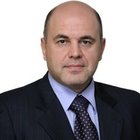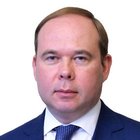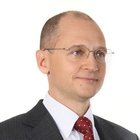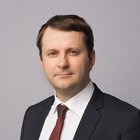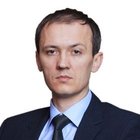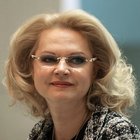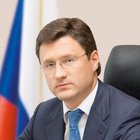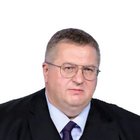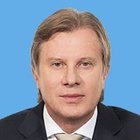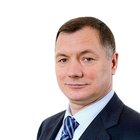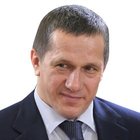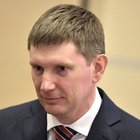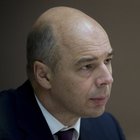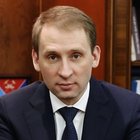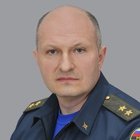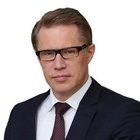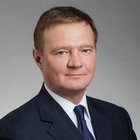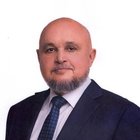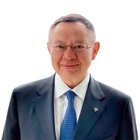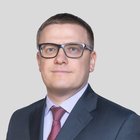The meeting was attended by Prime Minister Mikhail Mishustin, Chief of Staff of the Presidential Executive Office Anton Vaino, First Deputy Prime Minister Denis Manturov, First Deputy Chief of Staff of the Presidential Executive Office Sergei Kiriyenko, Deputy Chief of Staff of the Presidential Executive Office Maxim Oreshkin, Deputy Prime Minister – Chief of the Government Staff Dmitry Grigorenko, deputy prime ministers Tatyana Golikova, Alexander Novak, Alexei Overchuk, Dmitry Patrushev, Vitaly Savelyev, Marat Khusnullin and Dmitry Chernyshenko, Deputy Prime Minister – Presidential Plenipotentiary Envoy to the Far Eastern Federal District Yury Trutnev, Minister of Economic Development Maxim Reshetnikov, and Finance Minister Anton Siluanov.
Minister of Natural Resources and Environment Alexander Kozlov, Minister for Civil Defence, Emergencies and Natural Disaster Relief Alexander Kurenkov, Minister of Culture Olga Lyubimova, Minister of Healthcare Mikhail Murashko, Minister of Transport Roman Starovoit, Minister of Energy Sergei Tsivilev, Minister of Construction, Housing and Utilities Irek Fayzullin, Head of the Federal Service for Supervision of Natural Resources Svetlana Radionova, and Governor of the Chelyabinsk Region, Chair of the State Council Commission on the Economy and Finance Alexei Teksler were also invited to take part in the meeting.
Deputy Prime Minister Alexander Novak delivered a report on the main agenda item, the launch of new national projects.
Several current issues were reviewed at the beginning of the meeting.
* * *
President of Russia Vladimir Putin: Good afternoon, colleagues,
Today, we will have our first meeting after the long holidays. As agreed, many of our colleagues stayed in touch during the holidays, so the work never stopped.
I suggest discussing the most topical issues today. The main issue on our agenda today has to do with national projects. I would like Mr Novak, followed by Mr Teksler, to report on the launch of new national projects.
But at the outset we will talk about current issues. First of all, I would like Mr Fayzullin to tell us about the operation of our housing and utility services during the New Year holidays.
Mr Fayzullin, you have the floor.
(The Minister reported that the long holidays went without major heat supply disruptions thanks to the coordinated efforts of the utility companies and managing organisations in the regions, Rostekhnadzor, and state housing oversight bodies. He also listed the support measures used to renovate the housing and utilities sector. Last year alone, 12 programmes were implemented, and the regions upgraded more than 3,000 kilometres of utility lines. Over the year, the quality of public utilities improved for 2.5 million. The new federal project, Modernisation of Utilities Infrastructure, which is part of the Infrastructure for Life national project, will make it possible to improve the quality of services for 20 million people around the country by 2030 and annually upgrade 2.5 percent of the country’s grids.
Irek Fayzullin reported that the Government annually provided system-wide support to the regions during the heating season. In compliance with the President’s instructions, the Government keeps under control the situation in the reunited regions, as well as in the Kursk, Bryansk and Belgorod regions. The sponsor regions have put together 192 emergency recovery crews comprising 1,148 specialists and almost 400 pieces of equipment in the Donetsk and Lugansk people’s republics, as well as the Kherson and Zaporozhye regions.
According to the Minister, a systemic approach to the heating season has been put in place. There are sufficient volumes of fuel reserves, equipment and personnel on the ground are in a standby mode. The situation is being monitored on a daily basis in cooperation with regional authorities.
Answering the President’s questions, Irek Fayzullin spoke about upgrading drinking water supply facilities. Vladimir Putin asked him to keep these issues under special control, as drinking water is a particularly acute issue in some regions.
Further, at the request of the President, Minister of Energy Sergei Tsivilev reported on the fuel and energy complex’ operations during the holidays. According to the Minister, 84 technological malfunctions – almost half of last year’s number – took place during the holidays and briefly affected end consumers. Mass-scale power supply restrictions were mainly caused by bad weather and affected about 50,000 consumers in five regions. It took on average about six hours to restore power. As many as 23,000 emergency recovery crews numbering over 150,000 people, and about 60,000 pieces of special equipment were on high alert during the holidays. Additional forces and means were tasked with restoring damaged energy facilities in the new and border regions. The Minister expressed special gratitude to the industry employees who risked their lives in order to restore power supply to people and social facilities in those regions.
The Minister emphasised that the energy sector will do everything necessary to ensure reliable power supply and pass the heating season successfully).
Vladimir Putin: For my part, I would also like to thank the employees of all utility services who worked during the holidays to promptly ensure emergency maintenance.
As we all know, the employees of these agencies, ministries, departments, and local authorities keep working while the rest of the country goes on vacation during holiday season. Their work often involves serious challenges, and yet, the job is always done. Thank you very much. I hope that you will continue to promptly respond to accidents, whether on holidays or working days.
(Further on, at the President’s request, Transport Minister Roman Starovoit reported on the transport sector’s performance during the New Year holidays. According to him, from December 29 to January 8, Russian airlines carried over three million passengers, including more than 2.2 million within Russia. The seat occupancy rate on those flights was 85 percent. Moreover, as many as 56 airplanes of Russian airlines were simultaneously in flight on New Year’s Eve and in the early hours of January 1. Those airplanes were flown by 112 pilots, while more than 200 flight attendants took care of the passengers’ safety and comfort. About 1,200 air traffic controllers worked during the New Year’s Eve shift.
The Minister also said that more than 50 new air routes had been added to the Russian carriers’ winter schedule. In response to the President’s instruction, the government has been negotiating with the airlines a 50 percent discount on air fares for families with children. The 23 largest Russian airlines, which carry more than 95 percent of all passengers, began to offer a 50 percent discount for children under 12 years of age on all domestic flights within all existing fares, with the exception of business class, from January 1, 2025.
As many as 128,000 passengers celebrated the New Year on trains. On New Year’s Eve, 547 long-distance trains were en route on the Russian railway network, which means that more than 80,000 railway personnel had to work on New Year’s Eve and during the night to make sure everyone reached their holiday destination. In the period from December 27 to January 12, Russian Railways will carry over seven million passengers, which is 2.6 percent more than last year. During the holidays, 825 additional long-distance trains were scheduled.
During the New Year holidays, 143,000 passengers were transported to Crimea, which is more than two percent above the previous year’s level. From December 29 to January 8, almost 100,000 vehicles crossed the Crimean bridge in both directions, a 35 percent increase year-on-year.
Roman Starovoit mentioned 19 most popular tourist destinations for interregional bus routes, including the Krasnodar Territory, Crimea, the Golden Ring, the North Caucasus, Kazan, Karelia, Altai and many others.
The Minister stressed that the transport sector is now past the New Year’s peak demand, and preparations have begun for the next seasonal peak, the summer tourist season. Rolling stock is being prepared, new routes are being developed, and new passenger infrastructure facilities are being built.)
Vladimir Putin: Mr Khusnullin, in the days leading up to the New Year we commissioned infrastructure facilities and discussed the performance of the construction industry. However, the final results of the year will be assessed this year. It is probably a little early to talk about the final results, but the construction industry performance is more or less clear.
Deputy Prime Minister Marat Khusnullin: Mr President,
We have summed up the preliminary results, and here is what I have to say.
Thanks to your consistent support and constant attention to the construction industry, the Government’s staff work with the regions, and the efforts of major infrastructure companies, this industry has been growing steadily in recent years. We have grown by almost two percent over the past year, and we have grown by 32 percent overall as we worked to implement the national project.
We have implemented all the tasks under the Housing and Urban Environment and Safe High-Quality Roads national projects. We completed these projects last year. They are among the most recognisable and popular national projects. As I just said, we have accomplished all the tasks set under these projects.
Thus, over the six-year period of work on the national project, 23.6 million families improved their housing conditions, including about 1.5 million families last year. Due to system-wide support measures, the annual growth of housing commissioning went up from 82 million sq m in 2019 to 110.4 [million sq m] in 2023. Last year, we commissioned 107.4 million sq m of housing which is only 2.7 percent below the record-setting year of 2023. At the same time, I would like to note that we commissioned an all-time record volume of individual housing construction – 62 million sq m – which is 1.6 times more than in 2019.
(Next, Mr Khusnullin dwelled on the issues of social gasification, relocation of residents from dilapidated housing, and improving the living environment for people. He said that 577 million sq m, or 12 percent of the entire housing stock in Russia, have been built in just six years, which is impressive even on a global scale. He noted that the housing availability per person stands at 29.3 sq m now, but by 2030 it will reach 33 metres, and 38 metres by 2036. Meanwhile, private citizens, who annually invest anywhere from eight to ten trillion rubles in construction, are the main investors in the housing construction. Mortgage loans are the main way to improve housing conditions. On the instructions of the President, mortgage programmes with state participation have been launched. They provided a significant support to the population and the construction industry even when the interest rates were high. Mr Khusnullin noted that 3.2 million families had benefitted from easy-term programmes to improve their housing conditions. A total of 9.7 million mortgage loans worth 31 trillion rubles have been issued since 2019, of which 13.8 [trillion] have been issued under easy-term programmes. Of these, 11 trillion rubles under mortgage loans have been paid back by individual borrowers.
Deputy Prime Minister also noted that 1,100 sites had been built at the expense of the federal budget and listed a number of landmark sites that the President kept under control and asked to complete them by the end of the year. These sites include the Museum of the World Ocean in Kaliningrad and the Rimsky-Korsakov St Petersburg State Conservatory, which obtained a commissioning permit. Sites such as the Tretyakov Gallery, the Sevastopol Academy of Choreography, and a great number of other sites that will bring joy to people have been commissioned).
Vladimir Putin: Mr Khusnullin has just mentioned the St Petersburg Conservatory.
Ms Lyubimova, how are things there, what is your assessment?
Minister of Culture Olga Lyubimova: Mr President, good afternoon. Good afternoon, colleagues.
As you are aware, in summer of last year, the restoration was indeed almost entirely complete. We are now at a pivotal stage for us – the procurement of musical instruments. This has posed quite a challenge for our contractor colleagues who have worked diligently to meet deadlines.
We maintain constant communication with both the rector and the entire conservatory team because it is vital that – in addition to these remarkable stages, spaces, and the unique Rubinstein Hall, which we hope will consistently function as a concert venue allowing both city residents and numerous tourists to attend top-tier concerts – this place, a unique space renowned for such events, ensures that the educational process itself remains at the highest musical level infrastructurally, as it always has. The procurement of musical instruments is now nearing completion.
(The Minister then responded to questions from the President regarding the procurement of musical instruments, noting that there is now more space for rehearsals and greater capacity to accommodate more students, including those from foreign countries who aspire to study at Russian creative universities, notably in St Petersburg, which is very important.)
Vladimir Putin: I have one more question. In Kazan, with our Chinese colleagues, we discussed potential collaboration in cinematography. What progress has been made in this regard? I ask because I will soon have a telephone conversation with my counterpart, the leader of the People’s Republic of China. Have any advancement been achieved? Is there any joint work underway in this area?
Olga Lyubimova: Yes, thank you very much.
Indeed, it is important to highlight that our Chinese partners have made significant strides in the film industry. Symbolically, you know that in the second half of the 1950s, one of our first joint Russian-Chinese films was titled V Yedinom Stroyu [original name – Wind from the East]. The title of this film could now herald a new chapter in cinematic collaboration.
The Chinese film market is currently the largest globally. In this connection, new opportunities arise for creating films and promoting domestic achievements in one of our most important arts. Immediately following the meeting in Kazan, we held discussions with China Media Group and China Film Administration. Our Chinese colleagues confirmed their interest in stepping up cooperation.
However, it is crucial to note that our partners – primarily from the film business – are not fully aware of the capabilities of leading Russian filmmakers and remain very cautious when making decisions despite the existing experience in joint projects.
Therefore, we proposed a comprehensive approach to achieve goals related to enhancing mutual promotion of top national films and creating joint cinema without restrictions on screening within China’s territory and capable of showcasing shared values of our peoples.
The Ministry of Culture has drafted an inter-agency plan of action for promoting co-productions in the film industry. We forwarded this document to our Chinese counterparts back in early December 2024. We also plan to send a delegation of our film industry leaders on a working trip to China in the early months of 2025 so that they can explore and tour the country’s major cinema production centres.
We have already mentioned that Krasny Shelk – Red Silk – will premiere as soon as in February. It is an adventure film and one of the most anticipated films of this year. It is based on the actual events that unfolded in 1927 when the Communist Party of China held its 6th Congress in the Moscow Region. In fact, this was the only time it convened for an event of this kind outside of the People’s Republic of China. This was a co-production, and our colleagues in China have already endorsed it.
Moving on, there is another important point I wanted to make. We reached out to our partners in China with a proposal to arrange a presentation of our film co-production projects in order to deliver on our agreements on undertaking these initiatives in the film industry on a system-wide basis. This way, both Russia and China will present two projects in each of the following categories: feature films, documentaries and animation.
In addition, we offered our partners to arrange tours for Chinese film producers so that they can visit Russia’s most picturesque locations with a view to shooting their films there, while also inviting Russian film production companies to visit similar locations in China.
We will soon hold talks with President of the China Media Group Shen Haixiong to discuss all our plans. He is in charge of the film industry and the media within the Chinese Communist Party’s Central Committee. The Russia-China Commission for Humanitarian Cooperation has a sub-commission for promoting cooperation in the film industry. It will monitor our joint efforts in promoting cooperation in this sector.
The project to establish a Eurasian Cinema Academy and instituting an inclusive Eurasian Cinema Award is another key area of our cooperation. We have been working on this initiative as part of the intergovernmental roadmap for humanitarian cooperation until 2030, and view it as yet another avenue for promoting Russian film productions in the Chinese market, as well as an effective platform for supporting quality film productions and creating meaningful film content.
Russia and China are holding their respective years of culture for each other, and in the context of this ongoing effort, we intend to hold a dedicated breakout session for film industry professionals from our two countries as part of the 11th St Petersburg International United Cultures Forum. It will be an opportunity for us to review our performance and touch base on matters related to promoting our ties and dialogue with China in the film industry. Therefore, we hope that all these initiatives will serve as a major impetus for new Russia-China film projects, as well as for promoting creative collaborations and co-productions by making full use of the potential we have when working together in this bilateral setting.
Vladimir Putin: Very well.
May I ask you to draft a reference note for me on this topic so that I can raise it with our friends?
Olga Lyubimova: I will.
Vladimir Putin: Thank you very much.
Mr Novak, please tell us about the launch of new national projects.
Deputy Prime Minister Alexander Novak: Good afternoon, Mr President, colleagues.
Mr President, as per your instructions, the Government, together with the concerned State Council commissions, the expert community and businesses, has finalised the preparation of new national projects for the period until 2030.
On December 20, the Presidium of the Presidential Council for Strategic Development and National Projects approved the passports for all 19 national projects, including eight technological leadership projects. The total financing of the new national projects for the six-year period is over 57 trillion rubles, including over 40 trillion rubles to be allocated from the federal budget and over 13 trillion rubles from extra-budgetary funds.
Following the December meeting of the Council for Strategic Development and National Projects, you issued instructions that have to do with both general issues and the pinpoint adjustment of individual national projects.
I would like to report on what we have done so far.
Regarding measures to stimulate the development of autonomous intelligent transport systems, the Ministry of Transport is working to improve the legal framework for the operation of unmanned vehicles in all modes of transport.
We have created the legal framework for autonomous ship navigation and the use of unmanned aerial vehicles. Unmanned cars are being used now within the framework of experimental legal regimes by 15 Russian companies, such as Yandex, KAMAZ, Sberbank, Gazprom Neft and the Moscow Metro.
We are streamlining relations in the operation of unmanned vehicles, including with the aim of providing transport services and the commercial transportation of goods in the territory of 38 regions. This year, unmanned vehicles will be allowed free passage on the toll sections of the M-11 Neva motorway and the Central Ring Road.
We have completed the adjustment of measures for the national projects to create conditions for more efficient use of raw materials and the use of recyclable resources in construction and the manufacturing of construction materials.
A separate federal project, Closed Loop Economy, has been detailed within the Ecological Well-Being national project. It stipulates measures aimed at improving legislation, developing the market of recyclable resources, and creating the necessary infrastructure and a system for monitoring the use of recyclable resources in the national economy. Taken together, this will create conditions for using at least 25 percent of recycled construction materials by 2030.
As for providing federal funding for measures to improve embankments and parks, as well as the historic parts of our cities, the Construction Ministry has included these measures in the Infrastructure for Life national project. The necessary budgetary allocations for this purpose have been approved at approximately 60 billion rubles annually.
In addition to these allocations, the Construction Ministry also plans to attract extra-budgetary funds and budgetary infrastructure loans for major projects.
One of the system-wide issues that you, Mr President, have instructed us to focus on is state support for the regions in the Russian Far East and the Arctic, in particular, the inclusion of master plans for the development of Far Eastern and Arctic cities in national projects. Therefore, five national projects now include separate sections for this and activities from those master plans. A total of 433 billion rubles has been allocated from the federal budget to fund these initiatives. By the end of the first six months of this year, we will also decide on the sources of funding and the timeframe for other master plan activities that have not yet been included in national projects. We will prioritise spending for these purposes, including the use of budget loans.
Our next task is to make supporting families with children the major focus of all national projects. The Ministry of Labour, along with the concerned authorities and State Council commissions, has analysed all national projects for measures aimed at improving the quality of life of families with children, as well as measures aimed at increasing the birth rate.
As a result of this work, in addition to the dedicated national projects such as Family, Youth and Children, Long and Active Life, and Infrastructure for Life, which by definition envision building kindergartens, schools, outpatient clinics, and youth centres, other national projects have been amended to include relevant measures. In particular, a requirement has been added to the preferential lending programme as part of the Tourism national project for planned accommodation facilities to include family rooms in order to be eligible. The national project Effective and Competitive Economy now includes measures to stimulate long-term savings.
Major air terminals developed under the Transport national project will be required to include baby changing facilities.
Two further instructions concerned the adjustment of target indicators for the national development goals.
One of the indicators concerned is air mobility.
The Ministry of Transport has revised the planned results based on those actually achieved in 2024 and upped the targets for the next three years by an average of 7 percent, which should ensure annual growth. The new targets have already been added to the integrated plan for achieving the national goals, and they will also be reflected in the data sheet for the national project Effective Transport System.
Under the national project Unmanned Aircraft Systems, the Ministry of Transport and the Federal Air Transport Agency propose the following approach to creating UAV infrastructure: to create landing sites without capital construction based on the requests of operators; develop mobile platforms with the involvement of investors; increase production volumes and prioritise resources during the implementation of the project to accommodate, first of all, the orders and demand for drones in various sectors of the economy.
Mr President,
In summary, I would like to note that we have finalised and approved the certificates for all 19 national projects. These certificates detail all essential indicators and results for all regions of the Russian Federation. The regions have received the necessary funding in full. For example, they have received about one trillion rubles of federal funding for 2025 alone. We have signed all essential financial agreements, totalling 3,718.
We have also optimised the managerial system. Regional leaders heading specialised commissions of the State Council have joined project committees.
In line with your instructions, we have adopted legislation allowing for the write-off of two-thirds of regional budgetary loan debts. The funds derived from this will support investment projects and infrastructure initiatives, and will also be used to relocate tenants from rundown and dilapidated housing.
Additionally, the federal budget includes allocations for launching a new mechanism of infrastructure treasury loans. Acting in accordance with budgetary procedures, we will sign all required agreements to provide federal budget subsidies to legal entities by April 1.
A digital monitoring system that proved effective during the previous implementation cycle of national projects will enable oversight of national projects. We are committed to developing this system further in the context of risk assessment methods. The project management system allows for flexible management and enables quick modifications to specific projects when necessary, including through public feedback.
Mr President, as per your instructions, the Government has finalised a joint plan to achieve national development goals until 2030 and up to 2036. The Prime Minister approved the plan on December 30.
The joint plan includes national projects, as well as all other aspects and the Government’s tools for reaching national goals. We will ensure transparent monitoring of efforts to achieve all national goals, their indicators and objectives, which are synchronised with the national projects.
Mr President, we have completed all necessary procedures, and we are moving forward with the implementation of national projects in collaboration with the regions. We will report on initial results at the end of the first six-month period during a session of the Council for Strategic Development and National Projects.
Thank you. That concludes my report.
Vladimir Putin: Thank you.
(Following that, Governor of the Chelyabinsk Region and Chair of the State Council Commission on Economy and Finance Alexei Teksler delivered a co-report on launching the national projects. In conclusion, he thanked the President for his decision to write off two-thirds of the regions’ budget loan debt. He added that the debt discharge procedure had been coordinated with the Finance Ministry and the Government Executive Office, and that the regions were ready for its practical implementation.
Vladimir Putin: Writing off of loans is not the best way to address economic issues, but we proceed from the assumption that this is a necessary and useful action in this particular case.
I would just ask our colleagues in the regions to organise their work so that it is economically justified and aligns with the plan. Please do not allow delays in addressing socioeconomic issues or put them off for later. Do you understand what I mean? Responsible solutions, even if not particularly popular, should be made in a timely manner. The most important thing is to meet all deadlines. If you do, there will be no setbacks. I am absolutely sure of that.
I also ask the State Council, the Government, and regional leaders to do everything necessary to achieve the goals and targets outlined within the framework of the national projects, as well as to address and implement all tasks. The key point in this context is that the documents drafted and reported by Mr Novak should not be out of sync with the realities of life. As I have repeatedly stated, we will judge the results not by paperwork but by how the actions we take and the measures we implement affect the lives of real people. Please proceed with this premise in mind.
It should not be the case that plans are merely plans and projects remain projects, while life continues as it is. Everything should be directed towards achieving a real result, and the result will be judged by how the people of this country assess our work.
Thank you for what has been accomplished so far.
I hope everything will be organised within the parameters I have just mentioned.
Today, we cannot overlook a very sensitive and serious environmental problem. I am referring to the effort to eliminate the consequences of oil tankers sinking in the Black Sea and spilling large amounts of petroleum products into the water.
A relevant working group has been created first at the regional level and later at the federal level. Subsequently, the Government deemed it necessary to declare an emergency. Under the law, the Emergencies Ministry is leading this work.
I would like to ask Mr Kurenkov to assess the current situation and advise what actions we should take together shortly to mitigate the consequences of this environmental disaster. In practical terms, this is one of the most serious environmental challenges we have faced in recent years.
(Minister for Civil Defence, Emergencies and Natural Disaster Relief Alexander Kurenkov reported on the disaster relief effort following the oil spill caused by an accident involving tankers in the Kerch Strait. He talked about the resources and people involved in this undertaking and delivered a progress report. Over 8,000 people and 800 units of equipment have been engaged in the disaster relief effort in Crimea and the Krasnodar Territory. The minister also talked about the way volunteers and people of all ages and professions have been contributing to these efforts, united by their proactive commitment and sense of responsibility for the future.)
Vladimir Putin: Judging by what I see and the information I receive, I conclude that all the efforts made to mitigate the damage are clearly insufficient.
Let me reiterate that at first, they said that everything will be done at a regional level, only to come to the conclusion later that this should be a federal-level effort. After that they concluded that we had to declare a federal emergency, and so on.
We need to form a dedicated commission and operational headquarters that will work on-site – not at the local level, but led by senior officials from ministries and agencies, who should be deployed to the accident site. This is my first point.
Second, we need to do everything possible to stop the leakage of petroleum products from the submerged tankers.
Furthermore, it is necessary to consider and make plans for salvaging these tankers. This will require a lot of additional work in terms of preparing the corresponding specialists and equipment, and allocating financial resources – and all this must be done in advance.
As for the volunteers, we must thank them (turning to Alexander Kurenkov) for their dedicated community service. I hope that officials will demonstrate the same zeal and commitment in their efforts to mitigate damage from this accident and the ensuing disaster.
Let me reiterate that there are many challenges in this regard concerning technology, finances and technical matters. The time has come to summarise all these bits and pieces, analyse everything and come up with a general vision. I ask senior Government officials to treat this matter appropriately, while the corresponding services, ministries and agencies devise and put forward proposals on ways of organising this effort. They must do this without delay, and factor into their projections the fact that water temperature in the Black Sea will be higher in spring, and even more so in summer. By that time, they must not only draft the main, if not all, proposals for mitigating economic and environmental damage, but also start fulfilling them in a proactive and responsive manner.
I ask those involved in these efforts to report on their performance to senior Government officials, the Prime Minister, and to me personally.
Mr Kurenkov, I ask you to draft these proposals as quickly as possible and forward them to me. Agreed?
Alexander Kurenkov: Will do, Mr President.
Vladimir Putin: Thank you.
Today is [Minister of Healthcare] Mikhail Murashko’s birthday. Mr Murashko, I would like to wish you a happy birthday and all the best on my personal behalf and on behalf of all your colleagues from the Government of the Russian Federation. Thank you for your work. Thank you very much.
Minister of Healthcare Mikhail Murashko: Thank you very much, Mr President. I serve Russia!



